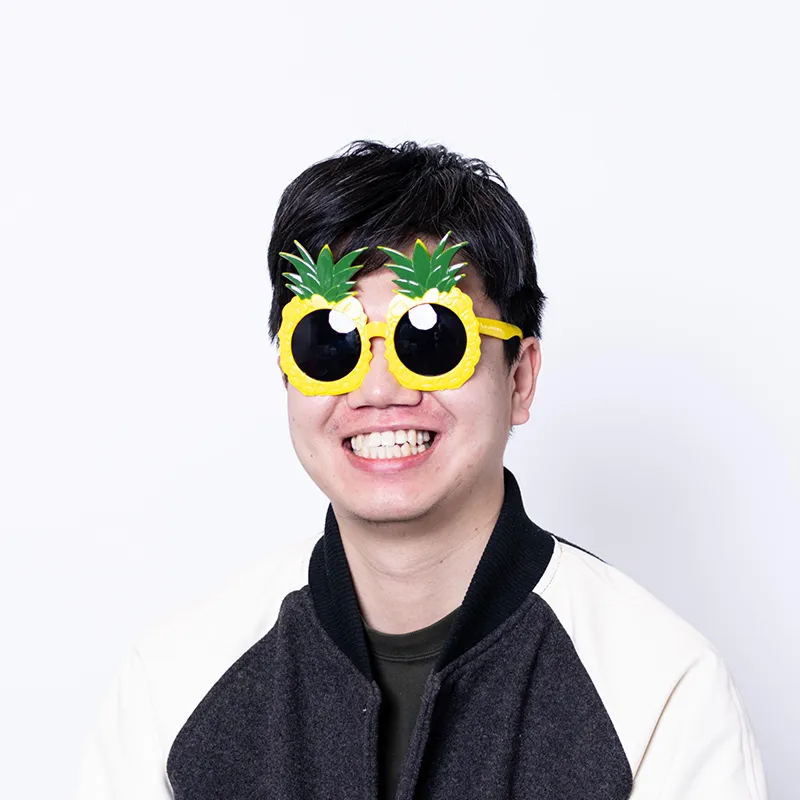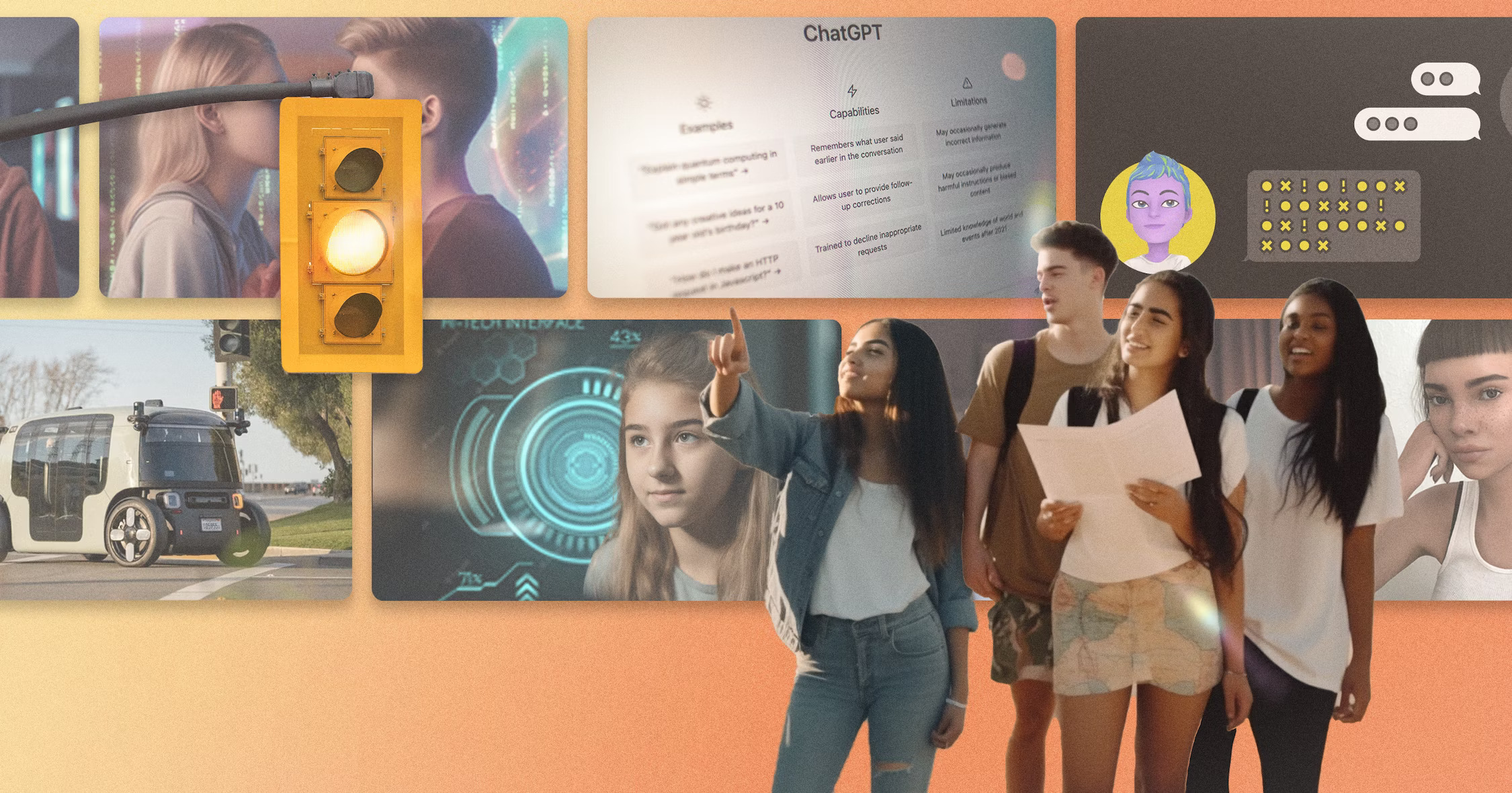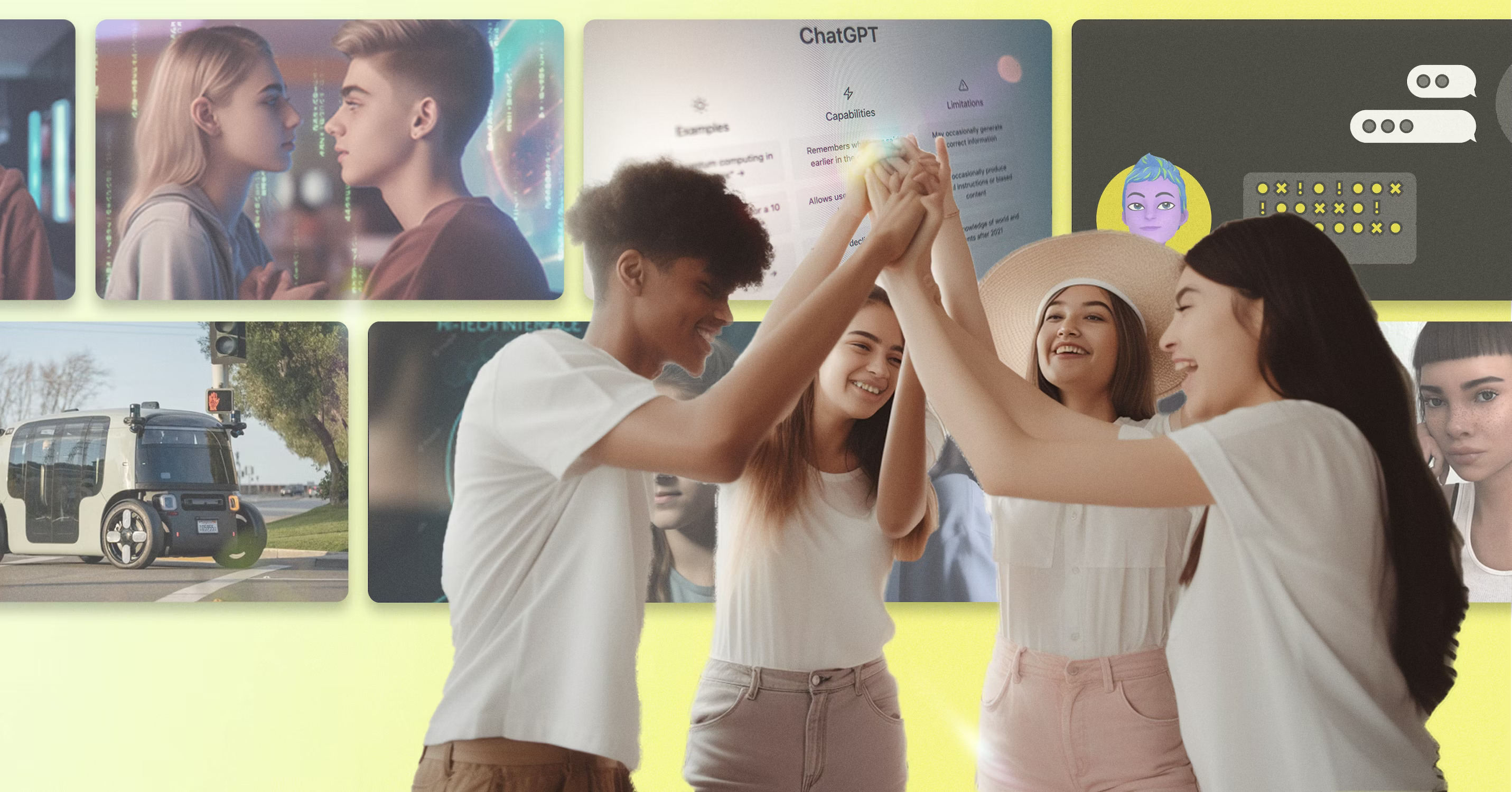Is Gen Z ready to embrace AI? It’s complicated.
.webp)
Screenagers. Digital natives. The TikTok generation. It's hard to find an epithet for those born between the mid 1990s and early 2010s—aka Gen Z—that doesn’t call out a dependency on technology.
It wouldn’t be a stretch to assume, then, that those between the ages of 12 and 25 would glom onto everything generative AI.
But that’s not what we found.
IDEO embarked on a data-driven approach paired with qualitative research with a group of Gen Zs, asking them what they think about the AI that so many companies are rushing to fold into new and existing products. The findings immediately challenged many of the prevailing assumptions about Gen Z.
As companies begin to leverage AI to power everything from art and music generators to dating apps, and even personal companions, it’s imperative that we understand how people will respond. This is a group that has already weathered the consequences of untested technology thrust upon them during their formative years (hello, social media), and it’s only fair that they have a say in shaping the next generation of technology and determining what aligns with their needs, and what disrupts their core values.
“I love being deeply connected to my intuition,” one 19-year-old told us. “And I feel like this technology can truly interfere with that and be super invasive to our natural rhythm and flow and trusting ourselves.”
To uncover ways we can responsibly design and innovate for their needs, we launched a stream of research into how to design AI for future generations.
Our interdisciplinary team—which includes members of this cohort—began with a quantitative approach, following conversations on AI on TikTok, meticulously analyzing hashtags, video topics, and comments.
What emerged was a strong consensus—AI is a helpful tool for boosting productivity and efficiency, particularly for school (help with homework), career development (writing a resume or cover letter), and daily routines (workouts or meal plans).
But we also discovered a profound ambivalence and much debate regarding the role AI should play in three specific domains: creative expression, human relationships, and mental wellbeing. What was striking is that these pillars are fundamental to identity formation and self-perception—integral parts of the coming-of-age experience that have already been significantly shaped by social media and the pandemic.
To dig deeper into this dichotomy, we created six sacrificial concepts—hypothetical AI products and services of the future.
- AI Venture Accelerator: A creative co-founder that helps you bring your idea to life
- AI Passion Coach: A guide that identifies your skills and makes suggestions for how and where to apply them
- AI Muse: An generator of inspirational ideas that accelerate your creative pursuits
- Our AI Friend: A bot that helps your friend group interact and connect
- New AI, New Me: An avatar trained on your preferences that has experiences for you
- Build a FrAInd: Your ideal bestie come to life, based on celebs and influencers you love
We presented the concepts to 12 young people, aged 13 to 21, encompassing varied life experiences and levels of familiarity with AI. Together, we delved into what really matters to them, unearthing their desires and concerns about the technology that will influence their future.
The insights we gleaned made us check our assumptions. The participants expressed a yearning for opportunities to learn through relationships, to try new things, and to embrace failure as part of their growth. They voiced concern about how AI companions might influence their expectations of genuine and complicated humans.
“You might start comparing your simulated friend with your real friends,” said one 20-year-old student. “And then start noticing all the flaws in your real friends, which might start damaging your relationships.”
Another participant pondered the consequences of a tool that eradicated mistakes or smoothed over challenges, as it would create an all-too-perfect reality. They viewed these experiences as essential components of life itself, stressing, “Let us figure out our challenges, let us work through things and have those emotions. Give us tools that could aid us along the way, or work on it, but let us have that experience because I think we need it.”
“Let us figure out our challenges, let us work through things and have those emotions.”
The lessons imparted by this cohort defy the prevailing technology-centric mindset and challenge the stereotypes slapped onto Gen Z.
As builders of AI products, we believe we must always return to people. We're not suggesting we press pause on exploring novel ways to integrate emerging technologies into our systems. But let's check our assumptions, consider the unintended consequences, and design AI for future generations with care and intention. Failing to do so risks making costly bets on products, services, and experiences that will fail outright. Or worse, creating new problems.
Look out for the second part of this series, where we’ll share innovation principles for AI that will help organizations leverage the power of design to learn, understand, and build not just for young people, but with them.
Words and art




Subscribe

.svg)









